Iyad Asali-general Manager Islamic International Arab Bank, Jordan
ISFIRE has global distribution and our readers come from all over the world; please tell us about your personal approach to Islamic banking and finance. As General Manager of Islamic International Arab Bank (IIAB), how have you contributed to the development of Islamic banking and finance in your country, Jordan?
Islamic banking has the responsibility to uphold the message of Islam in business dealings and other practices. I consider this responsibility as my main objective in leading IIAB forward through all obstacles, aimed at providing sustainable banking with positive impact on the economy, society, and environment as a whole.
At IIAB, we try our best to take a lead role in the development of the Islamic banking and finance in Jordan through hard work and building partnerships with local and international entities as well as taking advantage of the rapid development of the banking legal framework, central bank’s regulations, and Fintech.
IIAB is proud to participate in developing an integrated framework for Islamic SME financing by launching the first Shari’a-compliant SME financing guarantee scheme in Jordan, in addition to participating with the Central Bank of Jordan to mobilise international and regional soft loans (e.g. World Bank and Arab Fund), and providing technical assistance through cooperation with specialised entities. This financial framework is offered to SMEs at subsidised costs together with free technical support without a focus on collaterals.
IIAB also launched the first Islamic installment credit card based on Qard Hassan targeting individuals, featuring exemptions of any additional fees or costs for the outstanding balance so as not to overburden them.
You have had an illustrious career in conventional and Islamic banking, and now you’re running arguably the best Islamic bank in Jordan. How does your current role as General Manager of an Islamic bank differ from your previous roles?
I started my career in the late 80’s with one of the biggest banks in the UAE. Then I moved to Jordan as part of a Bahraini International banking group for 7 years, and later joined Arab National Bank in Saudi Arabia for 8 years, after which I moved back to Jordan to join Ahli Bank. During my stint here, I received a number of offers from Islamic banks, and I was selected by Arab Bank group to lead Islamic International Arab Bank.
Every role in my career had its own challenges and each had its own myriad priorities that demanded attention at any particular point of time. But the role of a General Manager of an Islamic bank is distinguished by delivering the message of Islam through making decisions in light of the Shari’a and principles of Islam to the benefit of the society. I realised that Islamic banking is about focusing on Active CSR through providing products and services for the good of the community and creating adequate income for the people. With all honesty, Islamic banking is the industry I wish to end my career in.
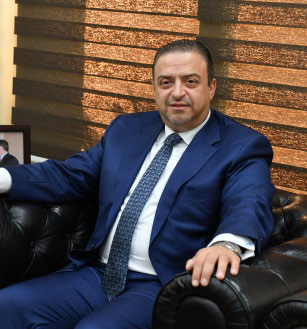
JOrdan is big on financial inclusion and women empowerment. What have Islamic banks in the country done to achieve social objectives of financial inclusion and poverty alleviation?
Islamic banks in Jordan are aware of their roles in financial inclusion and women empowerment in light of the Central Bank of Jordan’s vision towards increasing the financial inclusion in achieving the United Nation’s Sustainable Development Goals. IIAB takes a step further in this area by including more segments of individuals and MSMEs through developing new Shari’a-compliant products and services within attainable terms and conditions, and reasonable cost aiming to overcome obstacles that excluded those segments in the first place. Furthermore, the bank launched a tailor-made bundle of product called “Tamakani” for the economic empowerment of women and for business-owned by women, which feature easy terms and conditions within a special pricing scheme.
Islamic banking is significant in terms of size and proportion in the Jordanian banking sector. Some analysts believe that further growth in the sector will pose a real challenge and that it will be extremely difficult for Islamic banks to cannibalise conventional banking business beyond the current market share for Islamic banking. Does it mean that Islamic banking will never have a market share of 50% or more in Jordan?
I believe that in the long run Islamic banks will be the game changer given the continuous development of the banking legal framework and regulations that are more and more Islamic banking friendly. Nowadays Islamic banks are allowed to issue and participate in Sukuk for government lending and financing of mega projects that were previously restricted to conventional banks due to lack of Shari’a-compliant alternatives.
The world is fast becoming orientated towards the use of social media. What role can social media play in creating awareness around Islamic banking and finance?
The role of social media is very significant nowadays, and we understand how important it is to utilise social media platforms for marketing and branding purposes as well as grow customer engagement. We are now moving towards digitalised banking services because we recognised that the new generation of consumers is social media savvy.

“I believe that in the long run Islamic banks will be the game changer given the continuous development of the banking legal framework and regulations that are more and more Islamic banking friendly”
Jordan is one of the few examples of countries that uphold authenticity of Shari’a. In the absence of practices like tawarruq, how difficult has it been for Jordanian Islamic banks to compete with conventional banks?
Alhamdulillah, the vast majority of Islamic banks’ customers are very aware of Shari’a rules through their own knowledge or by referencing to the General Ifta’a Department (the higher Fatwa entity in Jordan). Shari’a provides many alternatives to tawarruq, which can be developed and provided after understanding of customers’ need. IIAB has successfully developed and launched 14 products based on qard hassan that are strictly adherent of Shari’a rules. One such example is our Islamic Installment Credit Card and installment at same cash price (Joa’la).
As an Islamic banker what challenges do you perceive in the wake of the growing role and influence of FinTech?
Changing towards Fintech needs a strategic vision alongside major investments in the banks’ infrastructure, information security, and increasing of customer’s awareness. I think that in the future, branch banking will be replaced by digital platforms and OMNI channels.
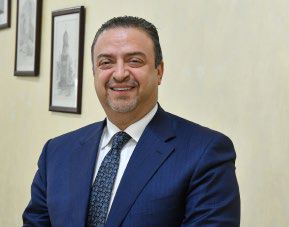
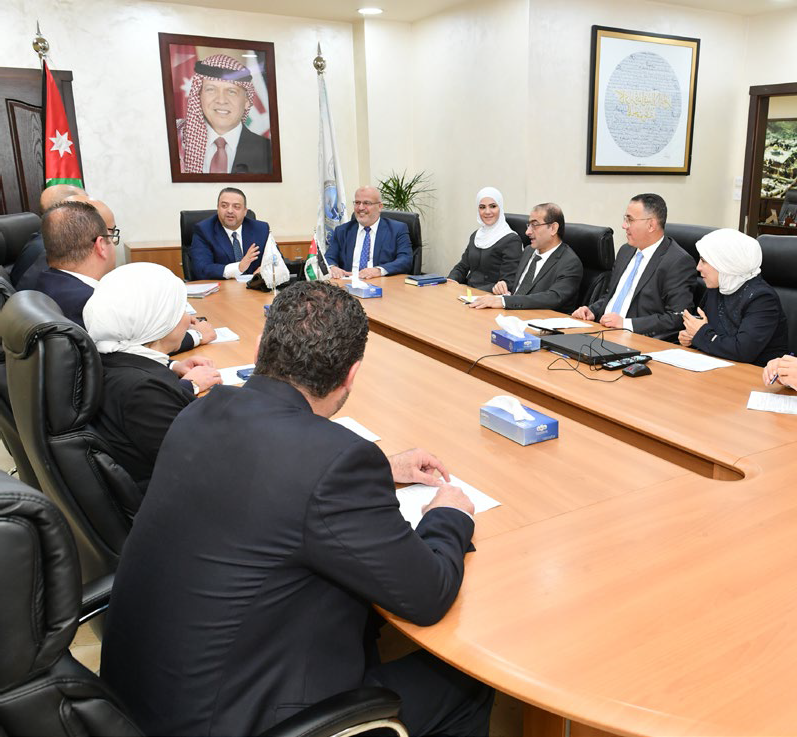

We see any development in Islamic banking sector worldwide as a potential for us to learn and improve ourselves in order to take Islamic banking to next level.
Can you please share with us details on Arabi Islami Installment Credit Cards, which receive Critics’ Choice Best Islamic Credit Card Award at the recently concluded Islamic Retail Banking Awards at Dubai?
Although AAOIFI has issued Shari’a standard on credit cards, many Islamic banks are trying their own ways to duplicate the conventional credit card in a Shari’a-compliant manner such as Murabaha or Tawarruq. IIAB sets clear objectives before developing the Installment credit card; which is to provide an authentic Shari’a-compliant card based on Qard Hassan (Charity loan) without any commissions or fees on its outstanding balance, with fixed issuance fee for all tiers and payment percentages (about US$35 per annum).
Since its launched, more than 36,000 cardholders are ts features including cash withdrawal, global rchases, and late payment fees wavier.
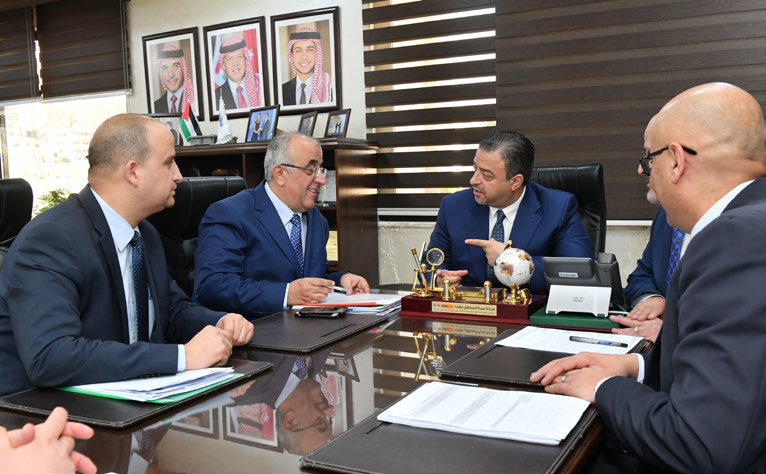
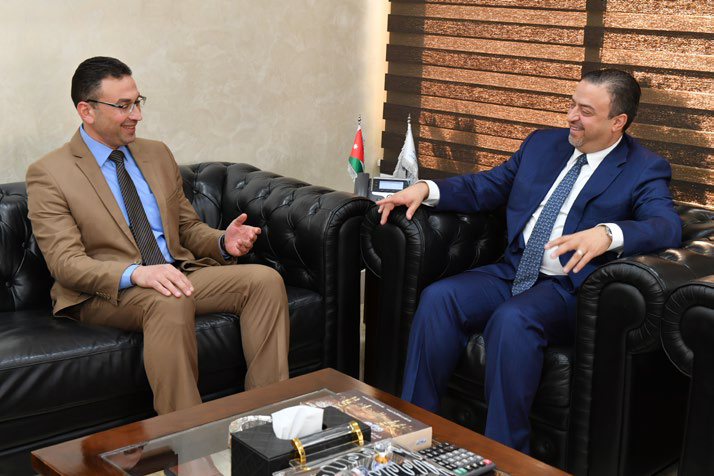
Your neighboring Saudi Arabia is fast embracing IBF. What possible effect can this have on further development of IBF in Jordan?
Islamic banking and finance is the most cooperative financial industry in the world, due to the regular meetings held by reputable parties such as AAOIFI, CIBAFI, IFSB, and Cambridge IF Analytica in which financial institutions share their experiences – both successes and drawbacks. Therefore, we see any development in Islamic banking sector worldwide as a potential for us to learn and improve ourselves in order to take Islamic banking to next level.
You travel extensively. Which Muslim- majority country has really impressed you and why?
Every country has its unique characteristics based on their values and cultures. Malaysia is truly unique and really impressed me with its various aspects. It is obvious that Malaysia’s ethnic diversity forms the backbone of Malaysian culture and economy and influences its various aspects. It’s worth mentioning here that the Malaysian Islamic banking sector is the number one Islamic sector worldwide with its advanced banking regulations, efficient money markets, and banking products and services.
Please share with the readers a typical day of Iyad Asali. How it starts and what are must on the to-do list on a daily basis?
Waking up for fajr prayer every morning gives me a push to start my day positively. I always enjoy a cup of coffee while reading daily newspapers to prepare myself for the day’s activities.
Although I often have a busy meeting schedule ahead of me, I frequently make time to visit the bank’s different branches so as to be close to bank’s staff at all levels. We often chat about our mutual objectives and concerns for the bank to motivate them to work more productively and positively for the good of our bank.
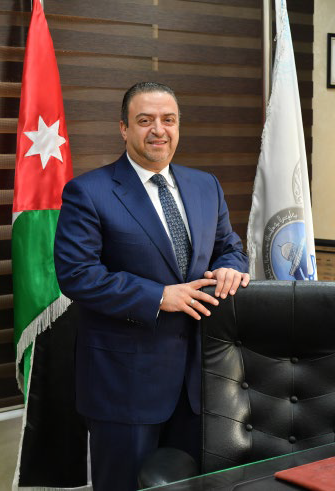
On a personal note, I try my best to have a balanced life especially for my family. Spending quality time with my daughters, sharing their experiences and learning from them, and taking care of my old parents.
What would be your message to the global Islamic financial services community, particularly the youth?
The Islamic financial services industry is poised for more resilient growth based on well-established basics and rules derived from Shar’ia. Young people are the rock on which the future of this industry will be built. Hence, innovation and creativity gained by proper training, education, and experience in related fields such as banking, financial engineering, information technology, and Shari’a are the foundations for the long-term growth of Islamic finance.



